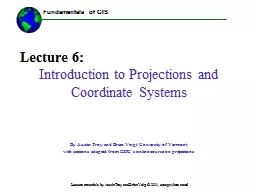PPT-structs Adapted from Dr. Mary Eberlein, UT Austin
Author : cheryl-pisano | Published Date : 2019-03-19
Structures struct Collection of variables with one name the variables are called members or fields may be different types Use structs to keep related data together
Presentation Embed Code
Download Presentation
Download Presentation The PPT/PDF document "structs Adapted from Dr. Mary Eberlein, ..." is the property of its rightful owner. Permission is granted to download and print the materials on this website for personal, non-commercial use only, and to display it on your personal computer provided you do not modify the materials and that you retain all copyright notices contained in the materials. By downloading content from our website, you accept the terms of this agreement.
structs Adapted from Dr. Mary Eberlein, UT Austin: Transcript
Download Rules Of Document
"structs Adapted from Dr. Mary Eberlein, UT Austin"The content belongs to its owner. You may download and print it for personal use, without modification, and keep all copyright notices. By downloading, you agree to these terms.
Related Documents














